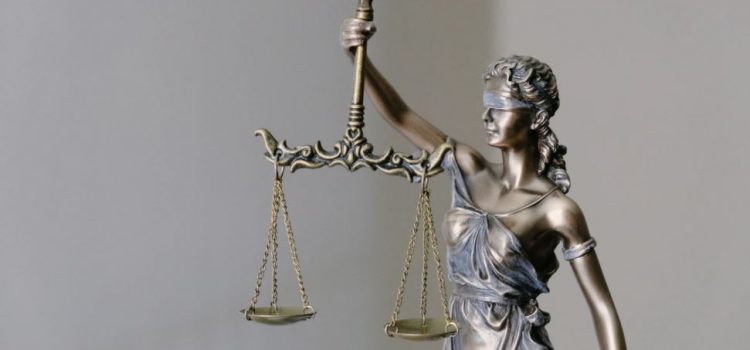

This article is an excerpt from the Shortform book guide to "Justice" by Michael Sandel. Shortform has the world's best summaries and analyses of books you should be reading.
Like this article? Sign up for a free trial here.
How should issues of morality be treated in politics? Should the government embrace one view of morality or avoid enforcing any specific moral code?
Morality is a contentious subject in political philosophy. Liberalists argue that we should deemphasize moral questions in favor of reason and logic. Proponents of Aristotle’s political theory, on the other hand, consider moral questions crucial for politics.
Michael Sandel contrasts the two philosophies and how they might inform real-life political debates pertaining to morality.
Maximizing Reason: Liberalism
First, Sandel describes liberalism and its emphasis on reason. This school of political philosophy developed during the Enlightenment (a period of rapid scientific and ideological change in 17th- and 18th-century Europe) and still strongly influences many of our political institutions today.
Sandel explains that liberalism tries to separate politics from people’s personal backgrounds, identities, and moral beliefs. Instead, liberals argue that people should use logic and reason to discuss politics, law, and justice. Much like libertarians (an offshoot of the liberal tradition), liberals argue in favor of a “value-neutral” state that avoids promoting any one moral code over another and leaves people free to live their lives as they see fit. To this end, liberalism supports freedom of speech, the separation of church and state, and universal laws that apply equally to everyone regardless of their identity, background, or beliefs.
Sandel discusses two philosophers to represent the classic and modern views of liberalism: 18th-century German philosopher Immanuel Kant and 20th-century American philosopher John Rawls.
Classic Liberalism: Kantianism
Kant’s moral and political views emphasize reason above all else. Sandel explains that according to Kant, actions aren’t moral unless you decide on them through purely rational deliberation. Kant argues that if you don’t make a choice entirely through reason, then you’re making it due to innate instincts and preferences—things you have no control over. Therefore, that choice wasn’t freely made.
For example, if you work at your job to make money for groceries and a place to live, then Kant argues your choice to work isn’t freely chosen and therefore isn’t a moral action—it’s not motivated by your purely rational view of what’s morally best, but rather by your self-preservation instinct to seek food and shelter.
Kant explains that to freely make a moral choice, you must dutifully and unconditionally obey a moral law that you create for yourself. Or, to put it more simply, you must do what’s moral only because it’s the moral thing to do and not for any other reason.
Kant argues that to be entirely rational, moral laws must meet two standards (called the “categorical imperative”):
1) Moral laws must work universally. To test if a moral law derives entirely from reason, consider how it would function if everyone followed it. If it doesn’t work universally, then it’s based at least partially on personal preference rather than entirely on reason. For example, John is furious at his annoying neighbor and thinks, “I should hurt people who disrespect me.” However, if everyone dutifully followed that law, there would be massive and perpetual cycles of violence. Therefore, John’s law is based on preference and isn’t moral.
2) Moral laws can’t use rational beings as a means to an end. As previously explained, a moral law that you follow for its own sake has inherent value—you follow it because it’s the morally right thing to do, not because it gets you something else. Kant argues that human life is the same way: Rational humans live life for its own sake and not for some other external goal. And since we live just to be alive, then living must have inherent value. Therefore, Kant believes that moral laws must respect the inherent value of human life. This means recognizing that human life is an end in itself and not using others (or ourselves) as a means to an end.
For example, John wants to punch his annoying neighbor. However, if he did that he’d be using his neighbor as a means to the end of getting out his anger and feeling better about himself. Therefore, according to the categorical imperative, John punching his neighbor is immoral.
Modern Liberalism: Rawlsianism
For a more contemporary example of liberalism, Sandel discusses 20th-century American philosopher John Rawls. While Rawls has the same goal as Kant—defining justice entirely through reason—he approaches it in a different way. Instead of appealing to universal moral laws, Rawls focuses entirely on how a group of equally competent and entirely rational individuals would organize society. This organization would determine the distribution of benefits (wealth, political power, rights) and obligations (laws, expectations). Essentially, Rawls tries to define justice in a way that he says any rational and self-interested person could agree with.
To that end, Rawls creates a thought experiment he calls “the original position.” In the original position, everyone comes together as rational, self-interested equals to debate the definition of justice until they find one that everyone agrees with. In this hypothetical, people don’t know the specific circumstances of their lives—things like wealth, religion, race, sexuality, and so on. This means people will argue for terms that apply fairly to everyone regardless of their circumstances. For example, in the original position, Tom doesn’t know how wealthy he is. Therefore, he won’t argue for terms that benefit the rich at the expense of the poor—for all he knows, he’s poor (or could become poor).
Rawls suggests that the original position results in two terms (or something similar to them):
- Everyone has guaranteed basic individual rights.
- Inequalities of power and money can exist, but only when they benefit the less fortunate (and the least fortunate most of all).
Term one ensures that nobody will be oppressed or denied freedoms for the benefit of others. Term two ensures that people can get ahead socially or economically, but not at the expense of leaving other people behind to suffer. Much like Kant, Rawls’s rules are universal—he believes that they can justly resolve any political question.
Maximizing Virtue: Aristotle’s Political Theory
Sandel contrasts liberalism with the political theory of Aristotle, the 4th-century BC Athenian philosopher. Unlike liberal philosophers, Aristotle believes that the questions of morality in politics should not be separated from personal life circumstances. To demonstrate why this is the case, Sandel focuses on two main themes of Aristotle’s viewpoint:
Theme #1: Teleology and Justice
Aristotle has a “teleological” view of the world—in other words, he believes that everything has an end goal or purpose (a telos in ancient Greek). Sandel explains that Aristotle uses this view to explain politics as a whole as well as the relationship between politics and individuals:
1) The telos of politics, according to Aristotle, is to create laws and a society that help people live satisfying and virtuous lives. While liberalism looks to give people the opportunity and freedom to live well and be moral if they so choose, Aristotle believes that there shouldn’t be a choice.
2) But the definition of “living well” varies depending on the person, explains Aristotle—different kinds of people have their own different telos (purposes in life) and require different things to achieve them.
For example, imagine someone who’s directionless and can’t function in society on their own. To Aristotle, this person would have the telos of obedience—for them to flourish and live the best possible life, they’d need direction, supervision, and help from a superior. Aristotle says that in this case, enslaving this person is moral—it helps both the enslaved person and the enslaver. However, if the enslaved person rejected their status or tried to escape, then Aristotle says they should go free, since their rejection shows that they don’t have the telos of being enslaved.
Theme #2: Leaders With Merit
The second crucial part of Aristotle’s political theory that Sandel discusses has to do with merit and “desert” (a philosophical term meaning “being deserving of something”). These are the main guidelines Aristotle uses for distributing social goods like rights, wealth, and political power. He reasons that society should give goods to the people who can use them best—for example, the best tools to the best carpenter, or the most land to the best farmers. Since Aristotle considers politics as the application of virtue, he concludes that the most virtuous people should hold power. This ties in with the telos of politics: Since the goal of politics is to make people live virtuously, it follows that a virtuous person is best suited to this task.
To Aristotle, this all takes place in the context of a community as a whole—the best farmer wouldn’t get the most land just so they could grow their personal wealth. Instead, said farmer would use their skill to grow food for everyone in the community.

———End of Preview———
Like what you just read? Read the rest of the world's best book summary and analysis of Michael Sandel's "Justice" at Shortform.
Here's what you'll find in our full Justice summary:
- A philosophical look at the goal of our society and its laws
- What a moral and just government and society look like
- Sandel's suggestions for how to create a more moral world






